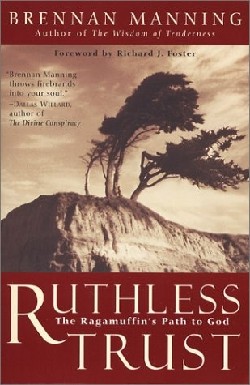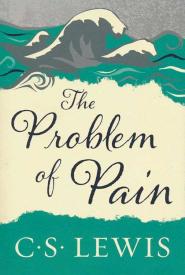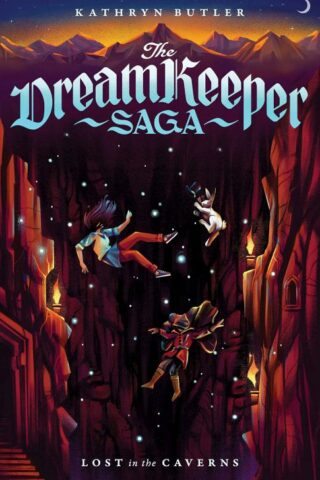Truth On Fire
$16.99
What would it look like to genuinely love God with our head AND our heart? To have a faith marked by right thinking AND right feeling? To know God deeply AND worship him passionately? Too often, Christians act as though these things are at odds with one another. But what if God intends for us to possess a Christianity that is radically committed to biblical truth, in a way that did not diminish the life of the heart, but actually intensified it?
Adam Ramsey invites us to engage both our minds and our emotions in our walk with God as we gaze at him until our hearts sing. He sums it up like this:
“My hope in these following pages is to paint a biblical portrait of what God is actually like, so that we can gaze upon him together until our hearts can’t help but sing. To behold him in such a way that our daily experience is transformed with a deepened awareness of who it is we pray to, who it is that is with us, and who it is that we are loved by. To let God’s truth set our hearts on fire.”
If you yearn for God but desire a clearer biblical picture of this God whom you love, or if you have been walking with God for a while now, but your experience of him has become settled or dry, then this book is for you.
in stock within 3-5 days of online purchase
SKU (ISBN): 9781784986483
ISBN10: 1784986488
Adam Ramsey
Binding: Trade Paper
Published: September 2021
Publisher: The Good Book Company
Related products
-
On Earth As In Heaven
$29.99Today’s leading Bible scholar, Anglican bishop, and acclaimed author N. T. Wright returns with a collection of pastoral excerpts, carefully curated from his widely celebrated books, that will inspire those wanting to cultivate a life “on earth as it is in heaven.”
Modern pastors and their flocks have long considered N. T. Wright a role model for being a thoughtful Christian in today’s world. His bestselling books, including Simply Christian, Surprised by Hope, Simply Jesus, and After You Believe, have guided Christians in their belief and practice of the faith. Now, Christians can rely on his wisdom to guide them through each day of their lives with this thoughtful book of daily meditations, featuring short selections from his classic works.
With reflections on themes such as faith, mission, character, and God’s work in the world, these daily meditations will invigorate and uplift Christians in their search to live their faith authentically and biblically in today’s world.
Add to cart2 in stock
-
Find Your People Curriculum Kit
$73.99Never in the history of civilization have we been more connected and felt more alone. We are all so lonely. What if fundamentally the ways we have set up our lives is broken? We’ve withdrawn rather than moved through it. We want supper clubs and friends, instead of war partners. We have a wrong view of community.
This 7-session video Bible study begins with a look at the original community in Genesis, the Trinity, and the creation of people to see what God had planned for us all along. We will also discover throughout the study the five life patterns required to build deep, connected relationships:
*Proximity
*Shared Mission
*Transparency
*Accountability
*ConsistencyThe seven sessions include:
*Week 1: Introduction / God’s Plan It is not good for man to be alone. (Creation)
*Week 2: Shame / The Disruption of Community Then the eyes of both were opened, and they knew that they were naked. (Shame)
*Week 3: Sitting Around the Fire / Proximity I will make My dwelling among you. (God’s Presence)
*Week 4: Working Together / Shared Mission Each of you should use whatever gift you have received to serve others. (Jesus and the Disciples)
*Week 5: Open Doors / Transparency And all who believed were together and had all things in common. (Acts)
*Week 6: Tribal Elders / Accountability Be kind to one another, tenderhearted, forgiving one another, as God in Christ forgave you. (The Church Grows)
*Week 7: Meals Together / Consistency Your love for one another will prove to the world that you are my disciples. (The Kingdom of God / New Heavens)
The curriculum kit contains one each of:
*Find Your People Study Guide plus Streaming Video
*Find Your People Video Study
*Find Your People Conversation Card DeckAdd to cart1 in stock
-
Ruthless Trust : The Ragamuffins Path To God
$14.99We are made for the love of God, and nothing less will ever satisfy us. In his acclaimed bestseller, The Ragamuffin Gospel, Brennan Manning showed us the powerful truth that the divine gifts of love is ever present for us regardless of the state of our lives. Now in this challenging sequel, he turns to our primary obstacle to living fully within this divine love — the lack of “ruthless trust.”
Through rich stories and deep insights, Manning shows us how true and radical trust can transform everything in our lives. No matter where we are on our path of discipleship, he offers encouragement to shed the limitations of fear, shame, and doubt through complete reliance upon God. The way of Ruthless Trust is not an abstract theory; it is that very practical and demanding path that each of us must follow in response to God’s love.
Add to cart1 in stock
-
Problem Of Pain
$17.99For centuries Christians have been tormented by one question above all — If God is good and all-powerful, why does he allow his creatures to suffer pain? C. S. Lewis sets out to disentangle this knotty issue but wisely adds that in the end no intellectual solution can dispense with the necessity for patience and courage.
Add to cart1 in stock











Reviews
There are no reviews yet.